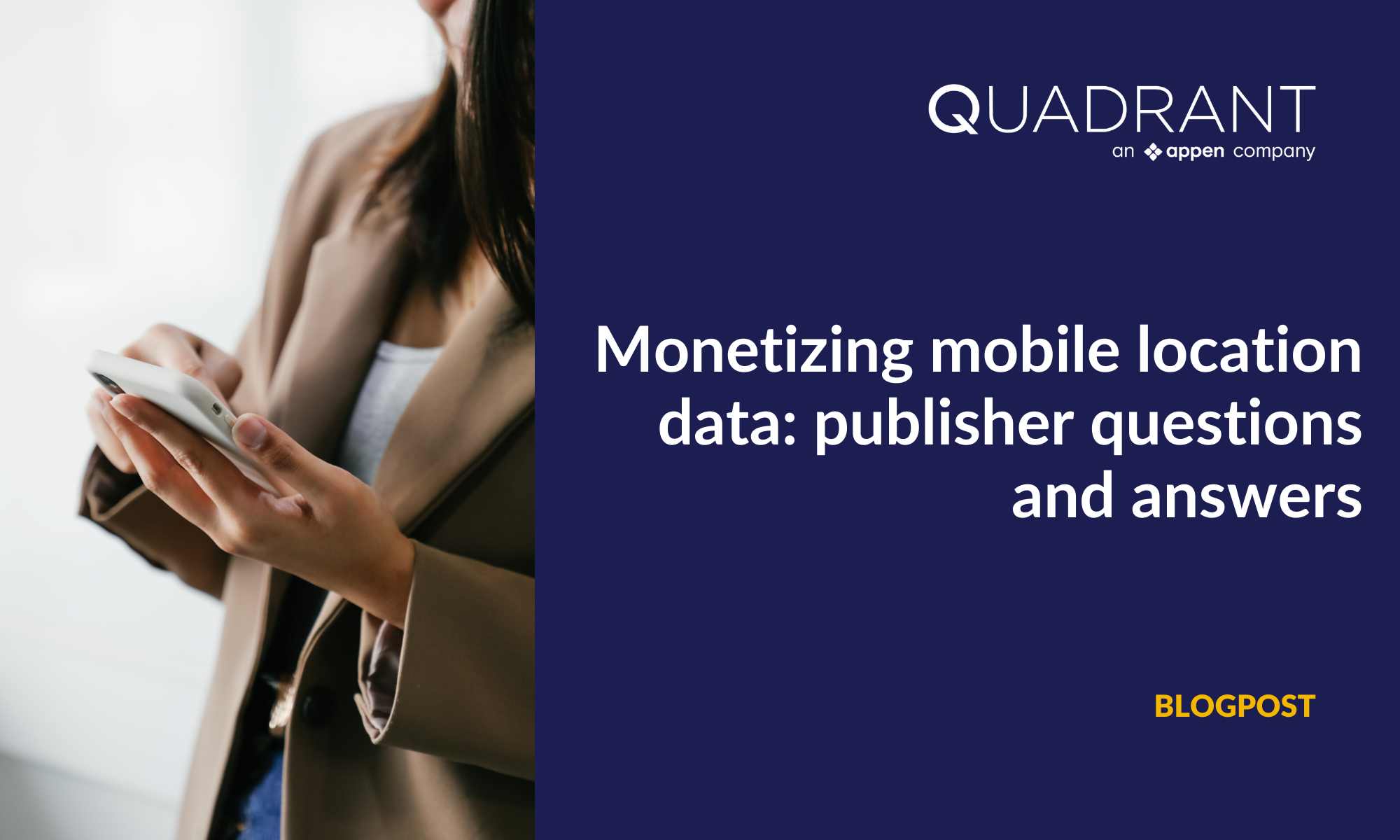Most publishers monetize their apps through one-off purchases, subscriptions, and in-app advertisements. However, subscription-based apps only account for 10.5% of the total revenue, and in-app advertising is disruptive to a degree that it directly causes churn. There is a third, better way of generating revenue from apps: data monetization. It is a new method and publishers often come us with a long list of questions. Here, we answer the most common ones.

Questions and answers about app monetization with user data
Monetizing user data can be a great way of generating substantial revenue without bombarding users with ads and other disruptions. The absence of repetitive, distracting, and contextually irrelevant ads makes sure user experience remains unaffected. Unlike with subscriptions, there is no middleman taking a significant cut of the income.
The most common concern around data monetization is if it is "allowed" at all. In short: user data is legal and ethical to store, process, or sell, as long as the users give their informed consent. At Quadrant, we are not just experts in mobile location data, but we also offer the most robust consent management platform in the industry with no cost to publishers.
Why is Quadrant paying for user data?
We are a leading provider of mobile location data, which we procure from publishers, SDKs, and other sources. Our customers buying these data sets come from different industries: retailers researching where to open a new store; local governments planning transportation services; public healthcare professionals working on pandemic management; and more. They all need up-to-date, accurate mobile location data to understand people's movements in the physical space.
What type of data does Quadrant collect?
We collect several location attributes from mobile devices such as latitude, longitude, device ID, etc. We do not collect personally identifiable information from any of our sources. In fact, personally identifiable information has no value for us or for our customers. They are interested in large, population-level mobility patterns, not individual users.
We also do not track users real-time. Retailers, local governments, etc, need historical data spanning months on even years for their analyses.
How does Quadrant collect location data from mobile apps?
We offer publishers two different options when it comes to integration.
The first is to add our lightweight location SDK into their apps, with just a few lines of code. After a user enables the sharing of location data, Quadrant’s location SDK collects latitude and longitude information while the app is in the foreground. In compliance with Google Play Store's policies for most applications, Quadrant’s location SDK only collects data when the app is in the foreground (there is no background data collection).
We also enable publishers to share the data without the SDK, using a direct server-to-server integration by means of an AWS S3 bucket.
Server-to-server integration typically results in lower payouts, but it is less technical overhead for publishers.
How does Quadrant ensure compliance?
The regulatory landscape is continuously changing. To keep up with existing and new consent conditions, we have built and encourage publishers to integrate QCMP (Quadrant’s Consent Management Platform) before supplying us data. The QCMP SDK comes coupled with our location SDK at zero cost.
QCMP ensures that all data collected from users is GDPR and CCPA compliant and provides a real-time audit of your consent lifecycle.
What assurance do publishers have that user data will not be misused?
The data supply chain is often opaque -- we are on a mission to change this.
By using the Quadrant Consent Management Platform alongside our location SDK (or server-to-server integration), publishers get real-time, audit-grade visibility on how their users' data is handled. This includes a catalogue of all the buyers who accessed the data, and it is recorded immutably and permanently on the Quadrant blockchain.
This level of transparency and accountability is unprecedented in our industry.
Monetize your mobile app with Quadrant
With each passing day, the mobile app landscape becomes more competitive.
Therefore, it is important for publishers to reduce their reliance on revenue streams that negatively impact user experience and app performance. Monetizing anonymised mobile location data is a great way of doing so!
By partnering with Quadrant, publishers secure the added benefit of an integrated CMP (QCMP) that ensures they are compliant with data privacy frameworks.




